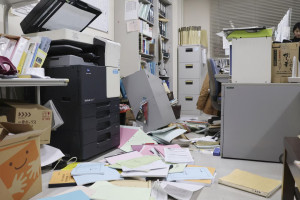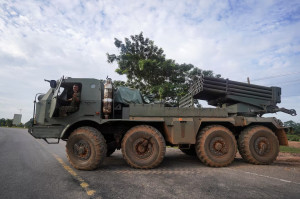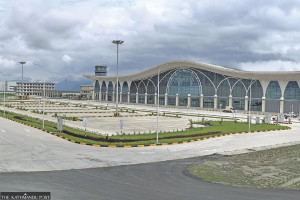World
Nepal's forests under threat over fuel crisis
Nepal's world-renowned community forests are under threat from a sudden rise in demand for firewood because of a fuel crisis, officials say.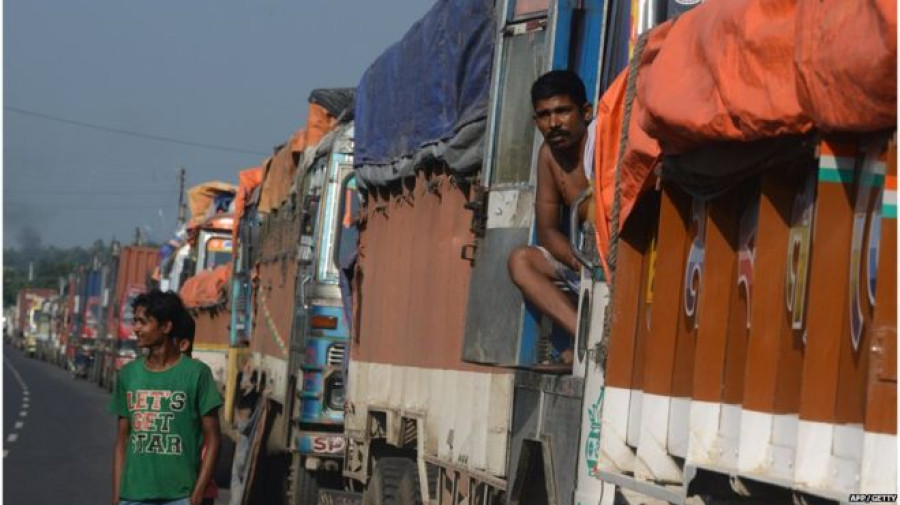
Navin Singh Khadka/ BBC
Nepal's world-renowned community forests are under threat from a sudden rise in demand for firewood because of a fuel crisis, officials say.
A blockade on the Himalayan nation's border with India has halted imports.
Ethnic communities in the southern plain bordering India are protesting against the new constitution, saying it does not adequately represent them.
At least 40 people have died and hundreds of trucks have been stuck across the border in India.
Nepal is a landlocked country and totally reliant on India for all its fuel, food and medicine imports.
Supplies have been disrupted for over two weeks.
Conservationists say people have been left with no choice but to cut down trees for firewood despite having a tradition of protecting their forests.
"With no cooking gas and kerosene for their kitchens, the demand for firewood has suddenly jumped and our forests are under pressure," said Ganesh Karki, chairman of Federation of Community Forestry Users Nepal, an umbrella organisation of community forests across the country.
"We have received information from our different member community forests that people are now entering forests to collect firewood and in several areas trees have been chopped down."
Nepal has been a global leader in community forestry where local people become custodians of the forests and are supposed to utilise the resource sustainably.
There are more than 15,000 community forests in the country, as well as 20 national parks and protected areas.
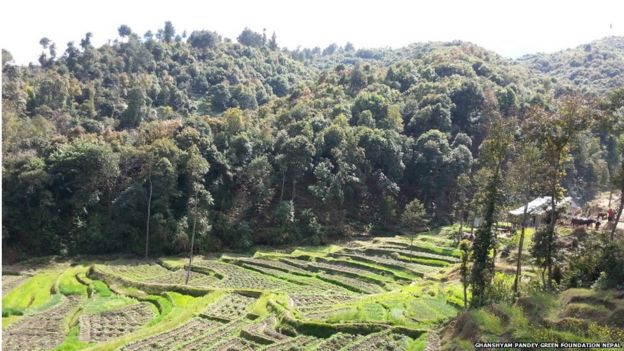
Nepal has been a global leader in protecting its community forests
The government says community members in Rautahat, a district in southern Nepal, have seized more than 150 bicycles which were being used to illegally collect firewood.
Illegal logging
And the forestry department has also started making contingency plans if the fuel crisis does not end soon.
"We have assessed our stocks across the country and have found that we can supply firewood to the capital Kathmandu for six weeks," said Department of Forest Director General Resham Dangi.
"We have no choice but to make such a plan because people will need fuel to survive and if the supply chain does not return to normal, the government will have to do what it can."
The government will release stocks of firewood in the first phase but then look at felling trees in a second phase.
Its priority is to supply firewood to the capital Kathmandu which is home to three million residents but has no forests nearby.
Mr. Dangi confirmed that forests in other parts of the country were already coming under pressure in the wake of the fuel crisis.
He said there had been an increase in illegal logging as the authorities are unable to patrol the forest due to the fuel shortage.
"Because we have no mobility, timber smuggling has increased, mainly from the forests of Tarai near the Indian border," he said.
Conservationists were already concerned after several communities cut down trees to rebuild shelters in the aftermath of April's earthquake.
Nepal has abundant water resources which could generate hydroelectricity. However, because of its political instability, not even 1% of its hydropower potential has been tapped, leaving people increasingly dependent on fuel imports from India.

Life in Kathmandu is coming to a standstill due to the petrol shortage
The country is already crippled with severe power cuts lasting as long as 20 hours a day during the dry season when the water level in snow-fed rivers is quite low.
Nepal Oil Corporation officials say 700 tonnes of cooking gas entered Nepal from India every day before the blockade but this has now collapsed.
"Some 250 of our tankers loaded with cooking gas have been on standby at the Raxaul bordering town of India for 22 days but the Indian authorities are not releasing them," said Mukunda Ghimire, director of Nepal Oil Corporation.
"We used to import 4,500 kilolitres of petroleum products other than cooking gas from India every day and now we are getting not even five percent of that.
"At some border trading posts, the Indian side has even refused to refill our tankers."
Political dispute
India rejects this accusation and says the disrupted supplies are due to unrest on the Nepalese side of the border.
"We had repeatedly cautioned the political leadership of Nepal to take urgent steps to defuse the tension in these regions," its foreign ministry said in a statement.
"This, if done in a timely manner, could have avoided these serious developments."
As the two sides trade charges, conservationists are worried that Nepal's forest resources are becoming a casualty.
"The reputation we earned with years of hard work is at stake because of this crisis," said Mr. Karki of the Federation of Community Forests.
"And so is the future of our forests."




 7.12°C Kathmandu
7.12°C Kathmandu



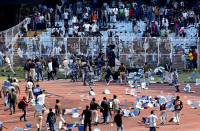



.jpeg&w=300&height=200)

